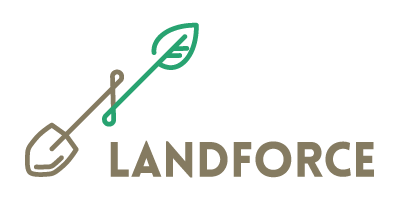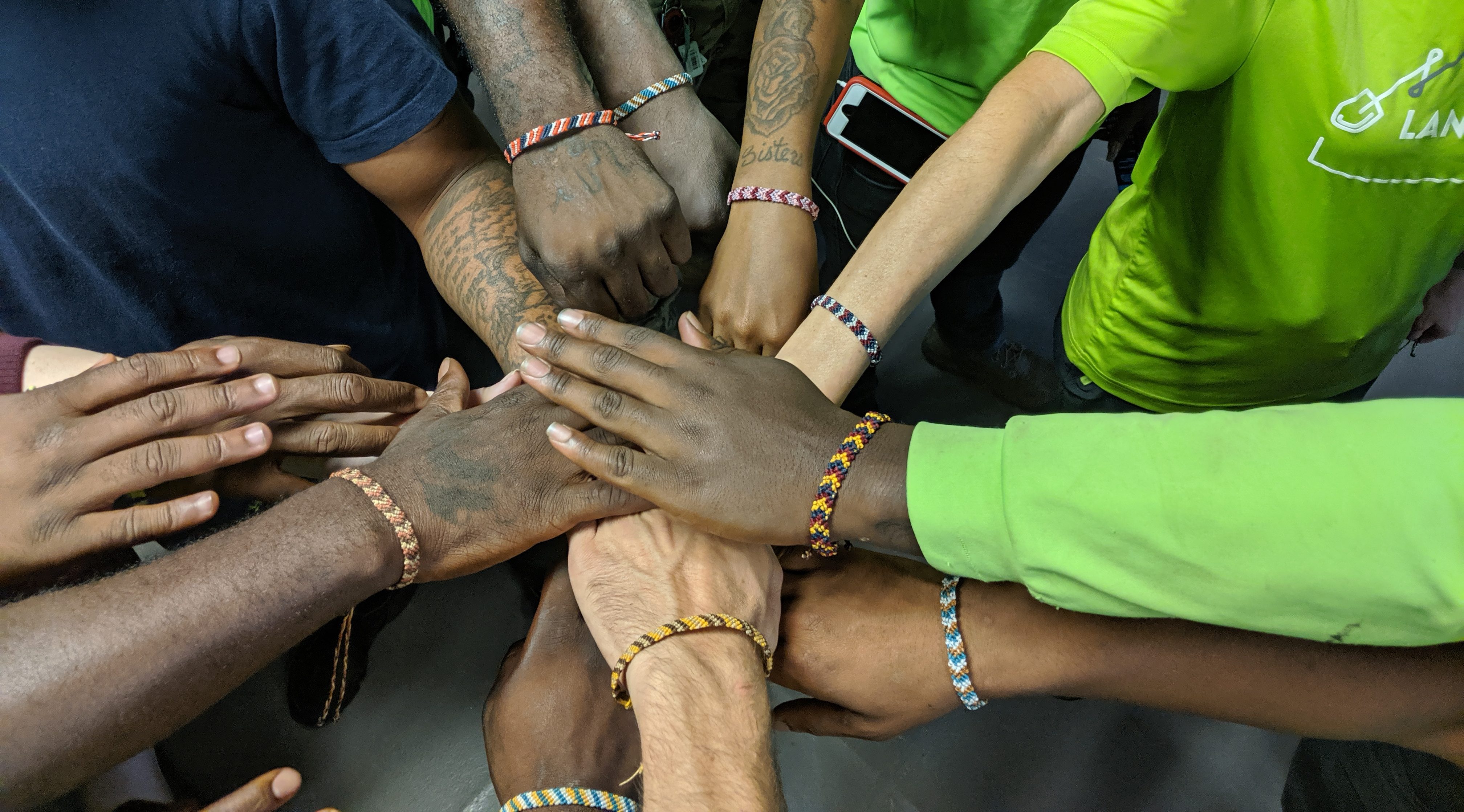
Reflections on Humanity: Costa Rica Part 4
If I were to pin down the one crucial ingredient that makes Nueva Oportunidad, and Landforce, for that matter, tick, it’s respect. Respect for our team, respect for our partners, for our volunteers, and equally for the people who go through our programs. In writing these last few posts, I’ve been careful about the words I’m using and how I’m describing people. I have, perhaps erred on the side of naivety and optimism. When describing people who are currently incarcerated, I’ve used the words person, man, woman, child, youth; not criminal, inmate, or prisoner. I have described feelings of accomplishment, of growth, of the hope that I’ve witnessed. I haven’t focused upon the anxiety, despair, and guilt that I also witnessed. I intentionally wanted to turn the lens to an incarcerated person’s humanity, not to their crime.
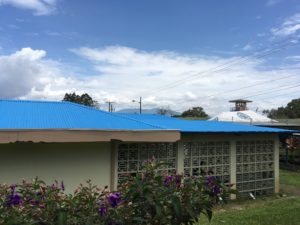 I do not intend this to depreciate the experience of people who were victimized by crimes. This is not an either/or situation. There is more than enough suffering to go around. For people who have been incarcerated, whether in Costa Rica or the USA, there is often a common experience of poverty, of governments not investing enough in platforms that can lift people up, of neighborhoods degraded by time and disinvestment, of families forced to make no-win decisions that reinforce generational poverty, and of limited or non-existent opportunities. I am not so certain that had I led the impoverished life so many of the people I have met led, that I would have had the strength, premonition, or luck to make decisions differently than they have. I actually wonder if I would even still be alive?
I do not intend this to depreciate the experience of people who were victimized by crimes. This is not an either/or situation. There is more than enough suffering to go around. For people who have been incarcerated, whether in Costa Rica or the USA, there is often a common experience of poverty, of governments not investing enough in platforms that can lift people up, of neighborhoods degraded by time and disinvestment, of families forced to make no-win decisions that reinforce generational poverty, and of limited or non-existent opportunities. I am not so certain that had I led the impoverished life so many of the people I have met led, that I would have had the strength, premonition, or luck to make decisions differently than they have. I actually wonder if I would even still be alive?
Whether in Costa Rica or the United States, once you have been incarcerated, the rest of society seems to view you differently, and your options for next steps become drastically diminished. In losing their freedom for a period of time, people who have been incarcerated lose much more than time. They often lose the respect and compassion of the rest of society. It is as if we forget that those who have committed crimes and have been incarcerated are fully human, as deserving of respect and opportunity as the rest of us. And if we treat people as other than fully human, how long will it take before they begin to think of themselves as unworthy as well? That is why the work that Nueva Oportunidad does is so important. By showing deep respect for the people they work with, Nueva Oportunidad does much more than provide entrepreneurial tools, rather, they are communicating very clearly that people in their programs are as deserving of respect as anyone else. For some people in their program, or in ours, this might be the first time in a long time they felt someone truly believed in both their right and their ability to succeed.
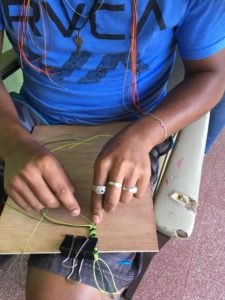 As part of teaching micro-enterprise skills, Nueva Oportunidad invests in an art teacher and an art room where incarcerated youth are taught to create high quality crafts they can sell as a source of income. While they are in prison, these crafts are sold on their behalf in local markets so that the youth can begin earning an income and planning accordingly. One of the youths is an indigenous person who can never return home because his people believe in “an eye for an eye” justice, and his crime would require a horrible reprisal. Once released he will need to proceed through life without any family networks or support, in a part of the country where he has never lived. Lauren and her team struggle with how to support his reentry, and those of others like him. They don’t have any official post-release programming, and know that, while they believe in him whole-heartedly, his future success is tenuous at best.
As part of teaching micro-enterprise skills, Nueva Oportunidad invests in an art teacher and an art room where incarcerated youth are taught to create high quality crafts they can sell as a source of income. While they are in prison, these crafts are sold on their behalf in local markets so that the youth can begin earning an income and planning accordingly. One of the youths is an indigenous person who can never return home because his people believe in “an eye for an eye” justice, and his crime would require a horrible reprisal. Once released he will need to proceed through life without any family networks or support, in a part of the country where he has never lived. Lauren and her team struggle with how to support his reentry, and those of others like him. They don’t have any official post-release programming, and know that, while they believe in him whole-heartedly, his future success is tenuous at best.
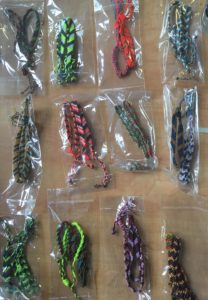 While visiting the youth jail for the first time, I commissioned a set of bracelets from him and another young man to bring back with me for the Landforce team. When, on my last day in the jail, he gave me mine, he spoke eloquently about how he chose the colors of the Costa Rican flag, which, ironically, are the same as that of the USA, and how he had put his heart into the bracelets, and was sending them with me with a heart full of love. I, in turn, will deliver these string bracelets to the Landforce team with a heart full of love – for the people I met who are incarcerated in Costa Rica, for their very human struggle to succeed in life, for the Nueva Oportunidad team who works tirelessly for their futures, and for the Landforce team who are doing the same in Pittsburgh.
While visiting the youth jail for the first time, I commissioned a set of bracelets from him and another young man to bring back with me for the Landforce team. When, on my last day in the jail, he gave me mine, he spoke eloquently about how he chose the colors of the Costa Rican flag, which, ironically, are the same as that of the USA, and how he had put his heart into the bracelets, and was sending them with me with a heart full of love. I, in turn, will deliver these string bracelets to the Landforce team with a heart full of love – for the people I met who are incarcerated in Costa Rica, for their very human struggle to succeed in life, for the Nueva Oportunidad team who works tirelessly for their futures, and for the Landforce team who are doing the same in Pittsburgh.
At the time, I had thought that the bracelets would simply serve as a visible reminder to me, and our team, that we are but part of a larger effort throughout the world to return dignity and livelihoods to people who have been incarcerated, binding us to our counterparts in Costa Rica. Only now, writing this, do I realize how, the bracelets, woven of string, become stronger and more resilient as they are woven together. Each individual string, just as the individual people, can be easily broken, but once woven together they become an integral part of a beautiful and robust whole. Each, a thread that is equally worthy, can only reach their true potential when woven into the rich whole. And in the same way that a single fragile thread relies on joining the whole, so too do the formally incarcerated depend upon us, the rest of society, to weave them back into life outside of prison. Without us welcoming them in, they will surely break, and we will surely be weaker. Incarceration does not change our humanity. Let’s not let it change the way we distinguish each other.
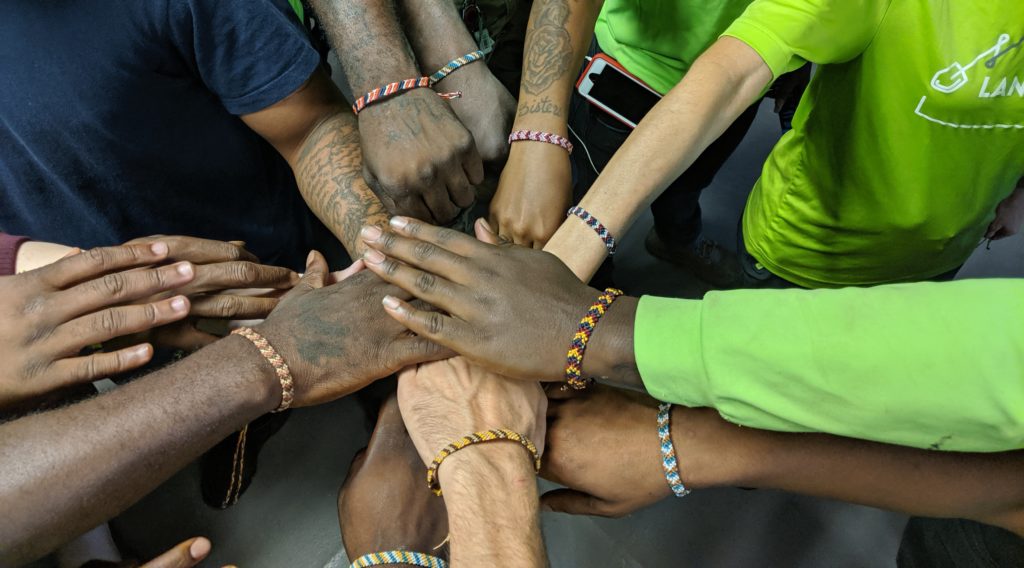
This is part four of a multi-part series written by Landforce Executive Director Ilyssa Manspeizer about her reverse exchange with Costa Rican nonprofit Nueva Oportunidad. Be on the lookout for more blog posts about the trip coming soon.
Funding for the reverse exchange program has been provided by the U.S. Department of State’s Bureau of Educational and Cultural Affairs via Meridian International Center as the implementing partner.
